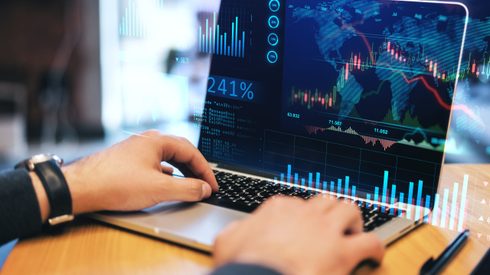“We’re starting to see a move up [for spot prices] and by the end of next year will start to see all [lithium] prices moving up.” Adams told delegates at the virtual event.
Lithium is a key ingredient in the manufacture of batteries for electric vehicles (EVs) and energy storage systems (ESSs), and lithium demand for both uses is expected to soar in the coming years alongside the shift to greener economies.
Prices for lithium surged over 2016 and 2017 in anticipation for this incoming demand, but capacity expansions outstripped demand growth between 2018 and 2019, triggering a slump in prices. The outbreak of the Covid-19 pandemic at the start of 2020 added further bearish pressure.
Yet in the key consuming market of China, the price of lithium carbonate has broken out of stalemate in recent weeks, with more producers insisting on higher offers due to increased orders from downstream cathode producers.
Fastmarkets’ weekly price assessment for lithium carbonate, 99.5% Li2CO3 min, battery grade, spot price range, exw domestic China was 39,000-41,000 yuan ($5,651-6,097) per tonne on Thursday October 22, posting a second consecutive weekly increase from 37,000-41,000 yuan per tonne on October 8.
During the same panel discussion, Tianqi Lithium sales director Ron Mitchell said the demand outlook from the EV sector is looking positive and his prediction for the fourth quarter of 2020 looks equally positive.
On the impact on lithium prices of a possible second lockdown across countries due to the Covid-19 pandemic, Mitchell said: “The impact of Covid has been varying so far and many companies have showed resilience, at the moment supply chains remain open and distribution channels remain open.”
Mitchell added that the only threat from a second wave of lockdowns could be on downstream production, which could have a short-term effect on prices but he did not see it as “a lasting impact.”
Supply build-up
Despite a positive demand outlook, any increase in lithium prices could be capped by a current build-up of inventory along the supply chain and the presence of idle capacity, conference delegates heard.
“The positive news is that demand [from the EV sector] is picking up very quickly but on the other hand [lithium] prices in China had bottomed out already and we have to consider they were at a very low level below marginal costs of production so the [increase] is a correction,” Daniel Jimenez, partner at Chile-based mining consultancy firm IliMarkets said.
“We still have a big disparity between prices in China and outside of China and we have a lot of supply coming into the market from SQM [Sociedad Qumica y Minera de Chile] for example,” Jimenez added.
“So in terms of what is going to happen in the next few months it is probably a convergence of prices in China and outside of China as we are still in an oversupplied market. The impact of Covid-19 has certainly been negative but the market was oversupplied already before the pandemic had started,” he warned.
Chilean lithium producer SQM has capacity to produce 75,000 tonnes per year of lithium carbonate equivalent (LCE). It previously announced expansion plans to allow it to reach production levels close to 200,000 tpy of LCE in the long term.
Lithium price evolution
The lithium market has fundamentally changed the customer landscape has also changed significantly, leading to a higher focus on price transparency alongside considerations on supply security, Mitchell said on the topic of price evolution in the lithium industry.
In response to the need for lithium price transparency, the London Metal Exchange said last week that it will launch a lithium futures contract based on the monthly average of Fastmarkets’ lithium hydroxide monohydrate price assessment.
The contract is planned for launch in the first half of 2021, the LME said, although it would be up to regulators and the lithium committee to assess market readiness.
“The LME has engaged extensively with the market over the past few months to make sure that what we are doing moving forward is reflective of what the market wants in terms of launching a new contract,” Antonio Masiero, market development manager at the LME, said during the panel discussion.
Reference prices are highly beneficial for market participants, allowing for transparency, fair negotiation practices and long-lasting business relations, he said last week as part of the LME announcement.
LME selected Fastmarkets in June 2019 as its partner for developing a globally accepted lithium price to underpin the futures contract.
Last October, the LME announced the formation of a lithium committee made up of industry members with the aim of representing the views and interests of lithium stakeholders in preparation for the launch of the contract.






